EASY GARDENING
Say goodbye to barren borders – the coldest months can still be packed with fabulous interest and gorgeous colours
This slice of a winter garden perfectly shows that the darkest months needn’t be empty months. Instead of bare brown soil there’s a backcloth of olive and purple-tinged foliage, while behind runs a wall of dark green yew. Against this, the white slashes of rubus and birch seem to leap forwards into the garden and the copper-orange witch hazel flowers run like embers across the entire planting, ensuring an undercurrent of warmth on even the coldest of days – and this is echoed by the ageing flowers of Erica terminalis as they fade into their quieter russet hues.
With the inclusion of both witch hazels and ericas, this is a planting for a well-drained, slightly acidic soil. Try to choose an open, sunny site and pay attention to your garden’s boundaries to ensure that the white stems and spidery flowers have something to glow against.
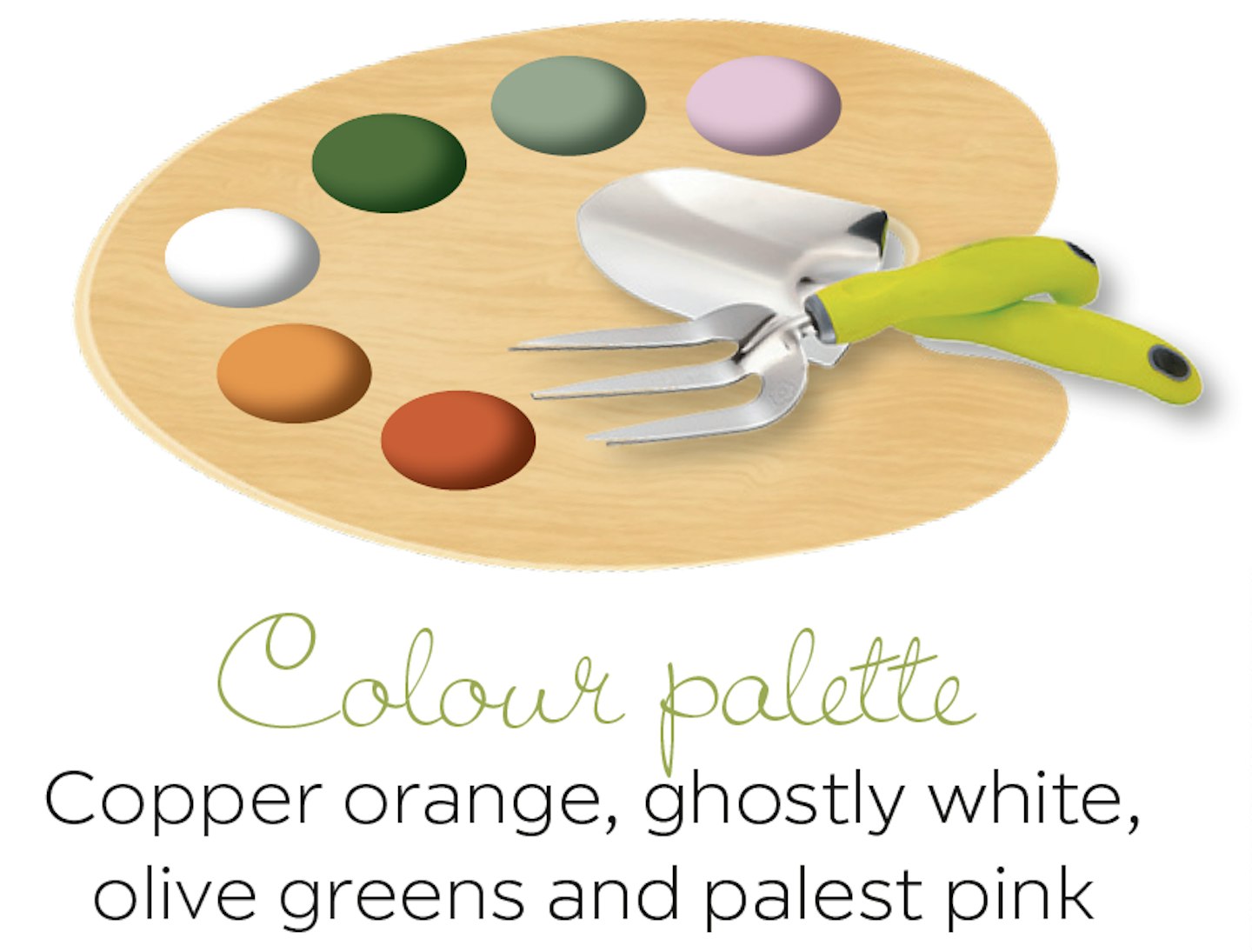
GET STARTED WITH A PLANTING PLAN
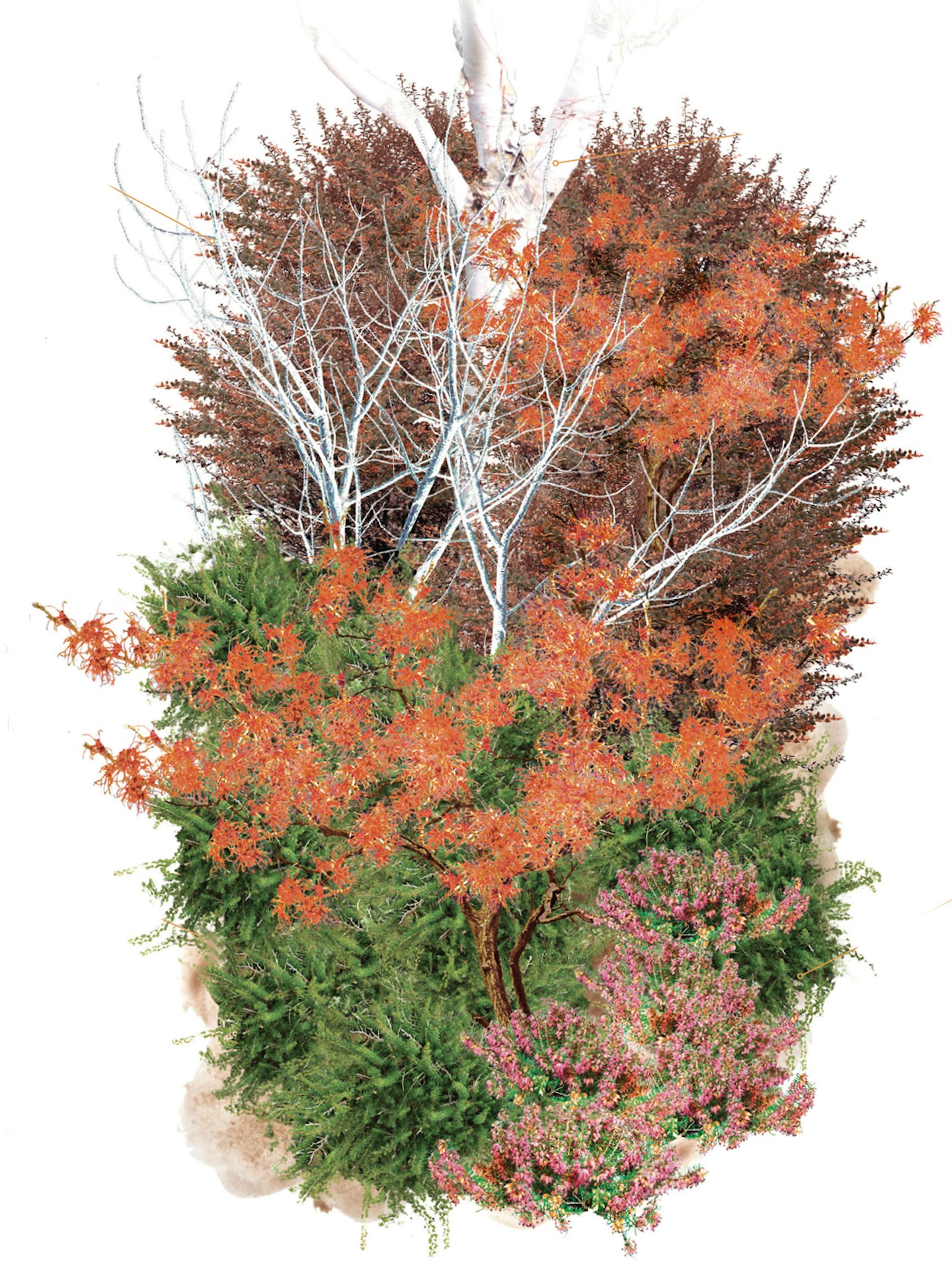
RUBUS BIFLORUS
Thorny white stems dazzle in the darker months on this vigorous suckering shrub that needs hard annual pruning. H&S: 3m.
BETULA UTILIS JACQUEMONTII ‘JERMYNS’
Peeling white bark on mature specimens make this a stand-out winter tree. Long catkins in spring and yellow autumn foliage. H: 10m.
HAMAMELIS INTERMEDIA ‘JELENA’
Spidery copper-orange witch hazel flowers December to February, offering delicate scent and good autumn foliage colour. H&S: 3m.
ERICA TERMINALIS
Small evergreen shrub with terminal clusters of rosy pink flowers from July to October that fade to a rusty brown and persist well into winter. H&S: 90cm.
BERBERIS WILSONIAE
The mounds of dense, semi-evergreen olive foliage on spiny stems turn maroon in autumn. Yellow flowers in May are followed later by coral berries. H: 90cm.
ERICA ERIGENA ‘IRISH DUSK’
Dark evergreen foliage and salmon-pink flowers from winter into spring on this little Irish heath. H&S: 60cm.
...or try this
● RIGHT PLANT RIGHT PLACE
White stems and russet flowers might be the signature of this design, but there are plenty of ways to tweak these colours depending on the atmosphere you want to create!
● BRIGHT WINTER STEMS
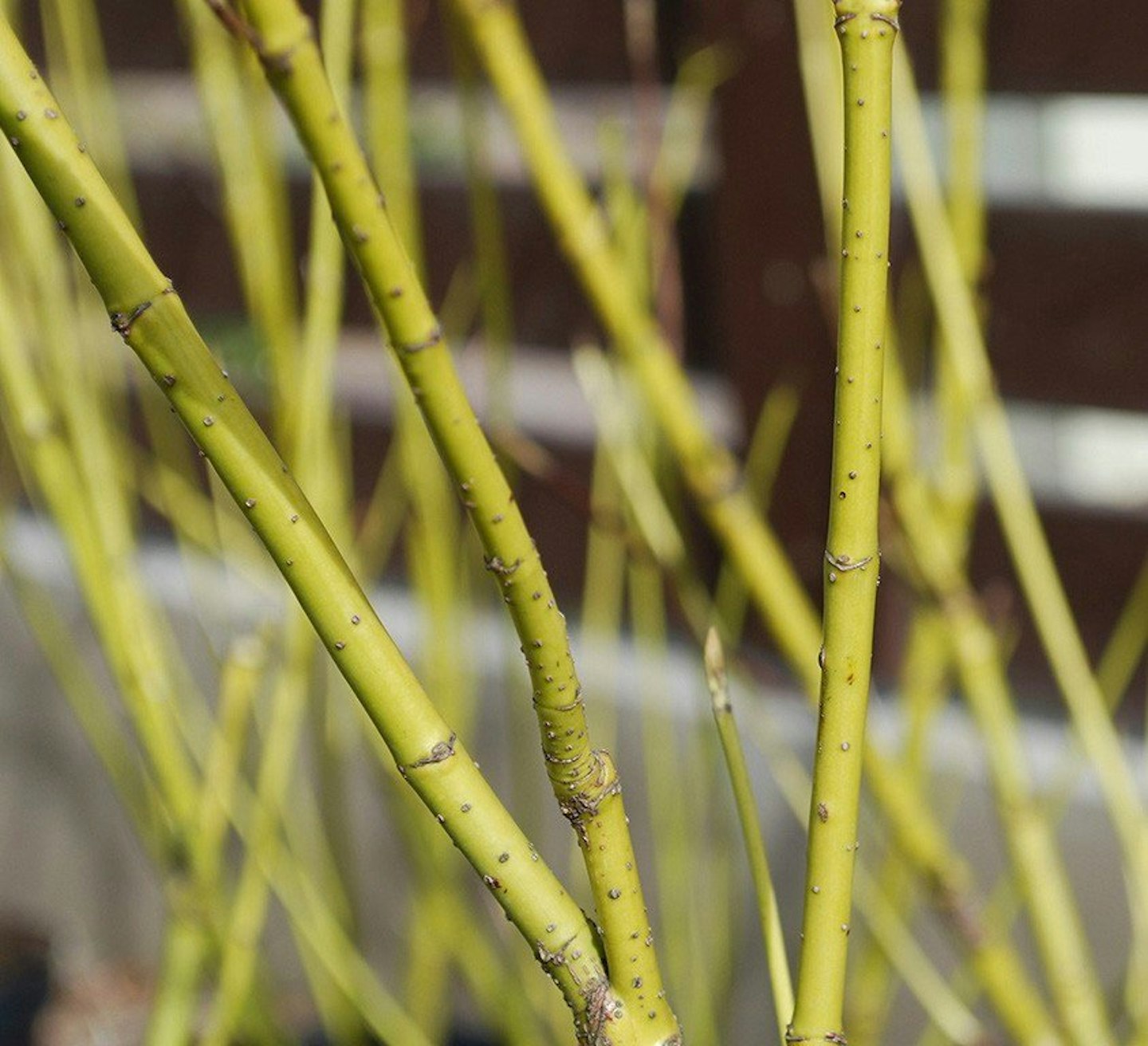
CORNUS SERICEA ‘FLAVIRAMEA’
Lime-green winter stems, showing brightest on young growth. Rich autumn foliage tints in red and orange. H&S: 3m.
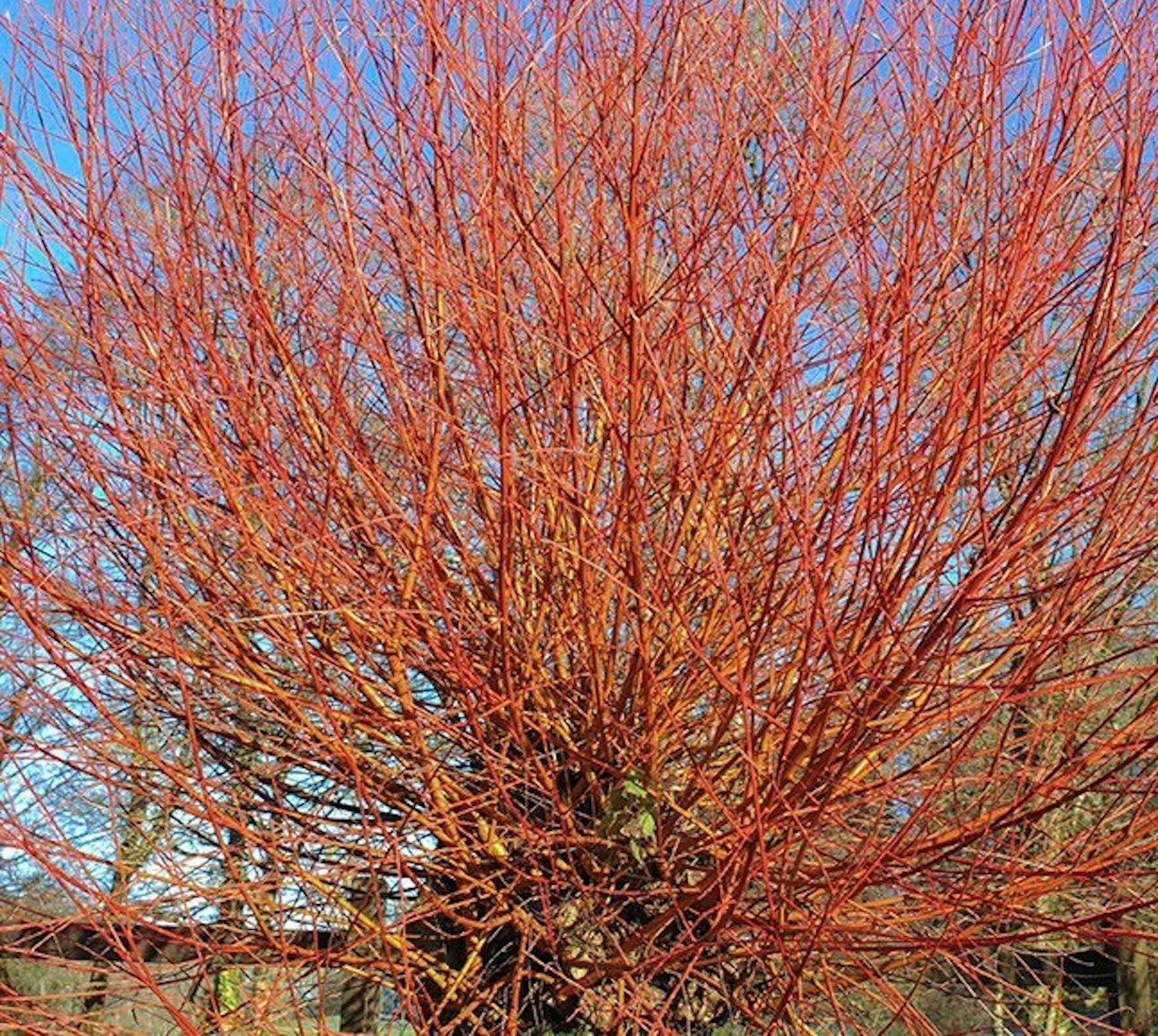
SALIX ALBA VITELLINA ‘BRITZENSIS’
Willow with orange and scarlet young stems that glow like a bonfire in winter. Pollard annually to control size. H&S: variable.
● ALTERNATIVE WITCH HAZELS
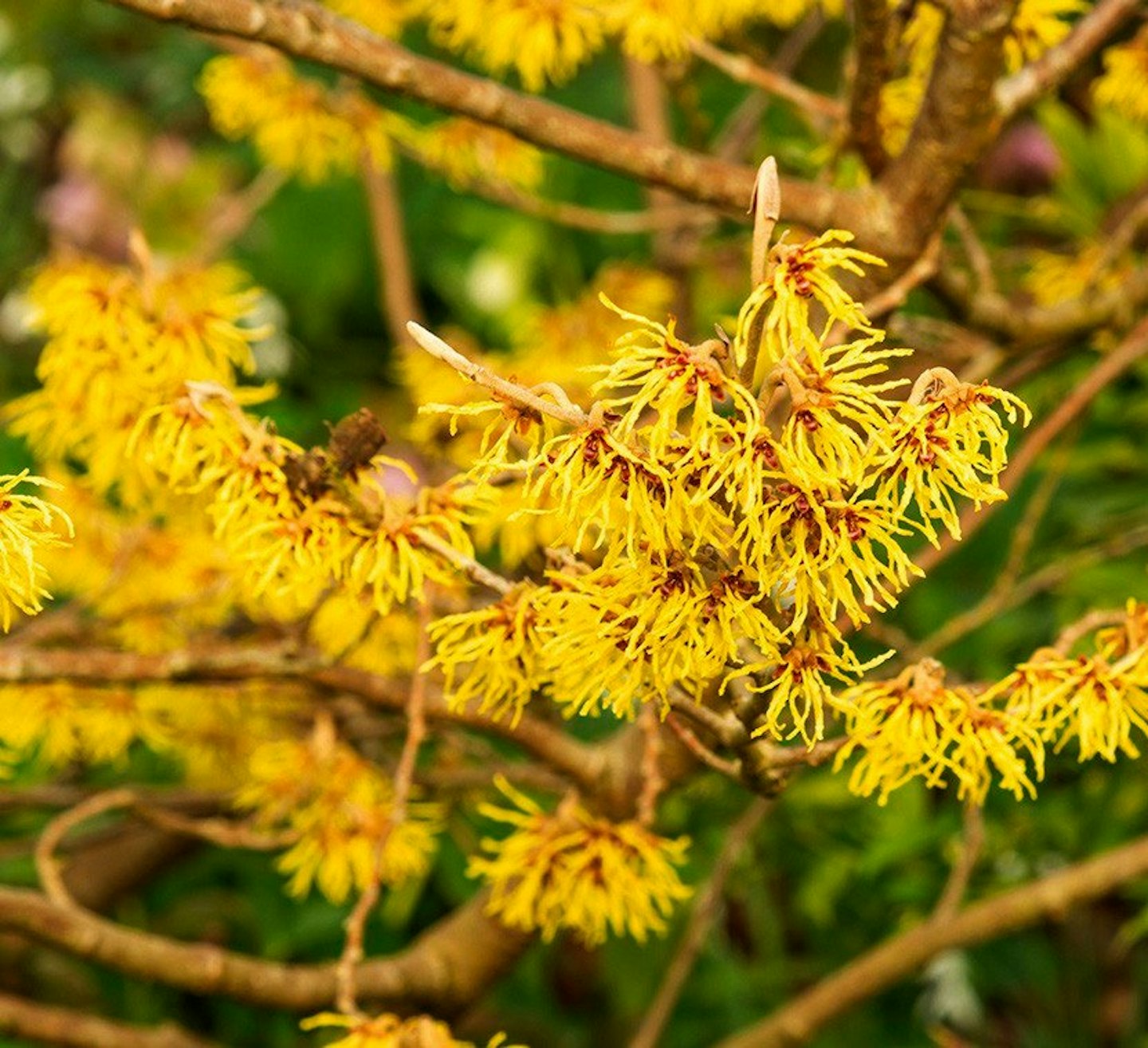
HAMAMELIS INTERMEDIA ‘ARNOLD PROMISE’
Glowing sunshine-yellow scented spidery flowers fromJanuary-February. Autumn leaves turn shades of red and yellow. H&S: 4m.
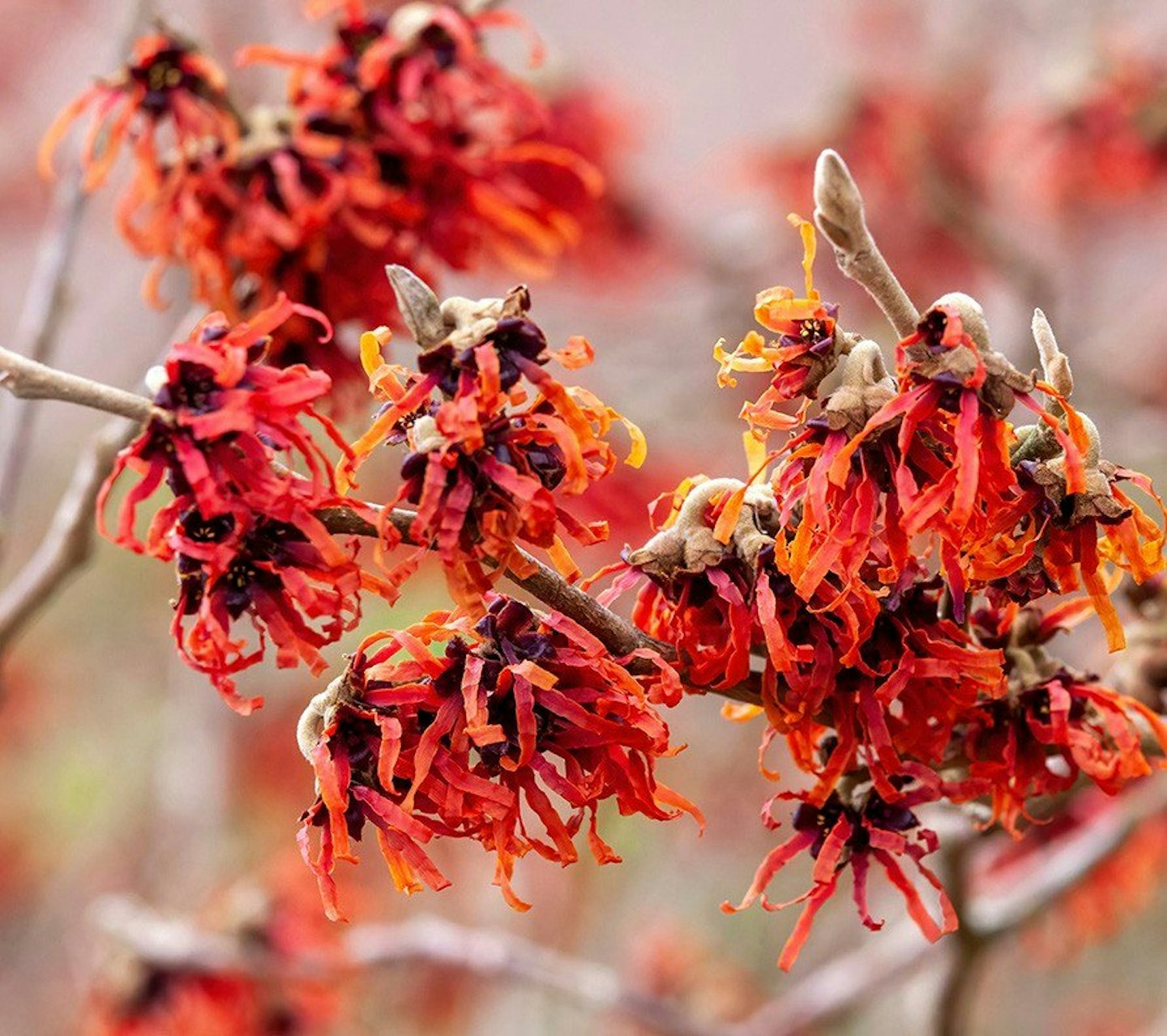
HAMAMELIS INTERMEDIA ‘DIANE’
Dark red, tightly crimped, fragrant flowers appear on bare stems from January–February. Bonfire autumn foliage colour too. H&S: 4m.
● PLANTS FOR ALKALINE SOIL
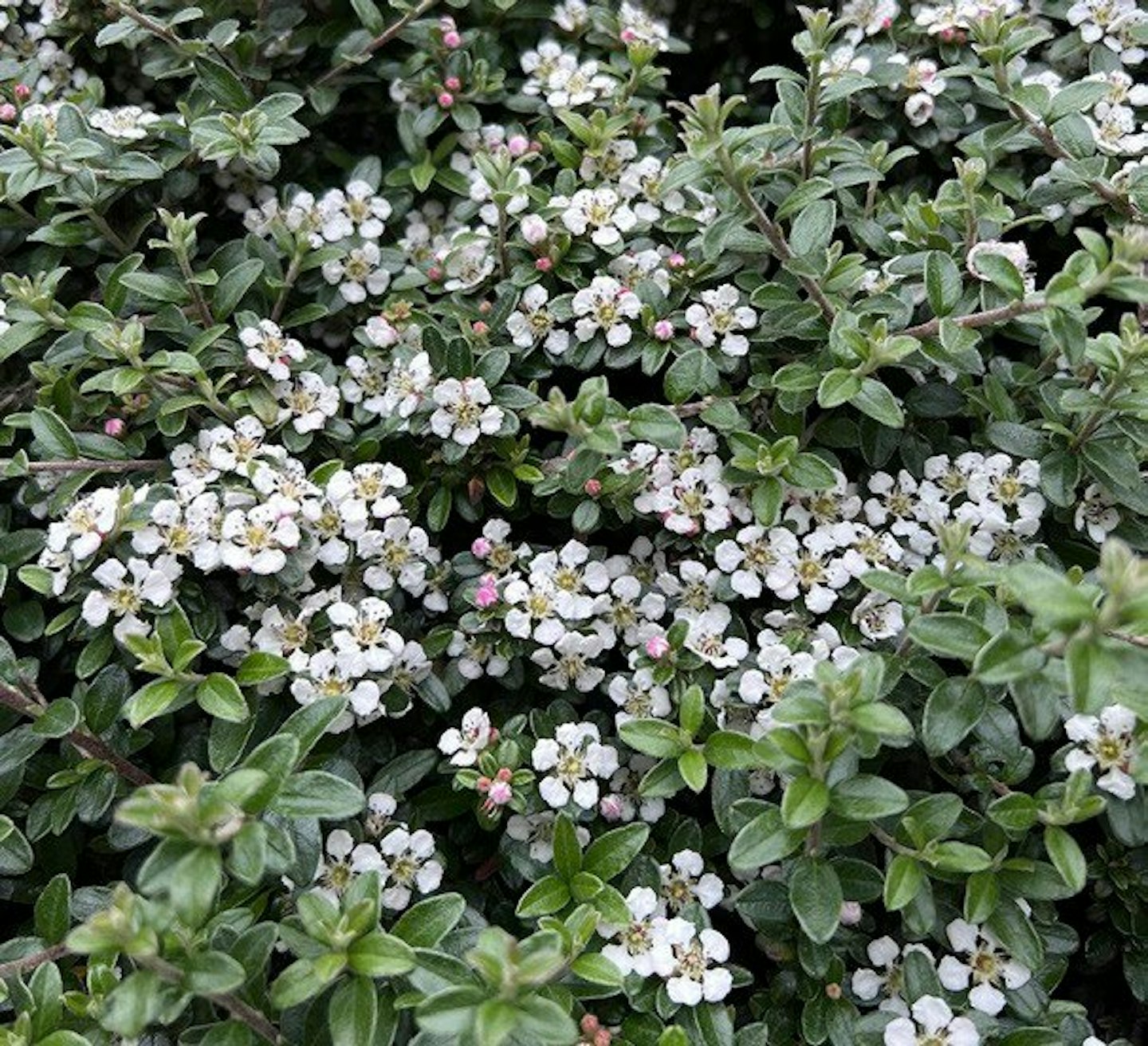
COTONEASTER SUECICUS ‘CORAL BEAUTY’
Low-growing evergreen shrub with dense foliage makes ideal ground cover. White summer flowers and coral berries. H: 90cm, S: 2.5m.

DAPHNE MEZEREUM
Deciduous shrub with highly fragrant purple-pink flowers in late winter on strongly upright bare stems. Likes humus-rich, well-drained soil. H: 1.5m, S: 1.2m.

